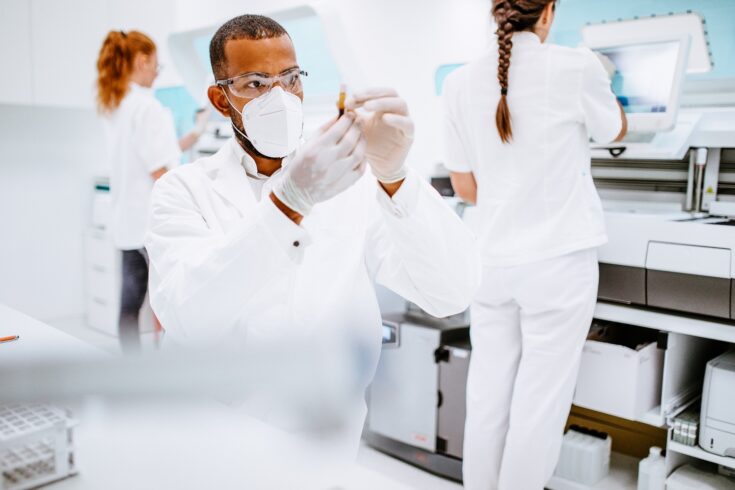By exploring avenues for new collaborations and partnerships, a UK-USA scientific summit aims to advance research progress in cancer.
This weekend, world-leading cancer researchers, patients and industry representatives will meet to explore how to build new UK-US collaborations and partnerships to transform cancer outcomes for patients and their families.
Rich history in cancer research
The UK and USA have a rich history of working together researching cancer.
As a leading cause of death worldwide, cancer accounted for nearly 10 million deaths in 2020.
While survival in the UK and USA has been improving, COVID-19 has held back progress and amplified the need for global action.
Collaborating on shared challenges
Over 13 and 14 November 2021, summit attendees will be challenged to identify transformative research grand challenges and ways to resolve barriers to progress in cancer research.
This will include:
- prevention and early detection
- delivering faster and better new treatments and interventions
- working with patients and their families to help deepen our understanding of cancer.
The meeting will:
- explore social, economic and environmental factors including those that contribute to health inequalities
- aim to address the unlocking of underlying disease mechanisms to inform progress in diagnosis and therapy development.
Patient engagement will be critical at every step.
Important challenges include:
- improving access and participation in clinical trials
- harnessing the power of health and biomedical data to transform lives.
Transforming life with cancer
With mutual interest in progress in cancer on both sides of the Atlantic, Prime Minister Boris Johnson and President Joe Biden will meet to discuss summit recommendations in spring 2022.
The scientific summit will be the first step in developing a research and innovation plan for the UK and USA to provide international leadership in transforming life with cancer.
The partners will seek consultation on the summit recommendations in a series of engagement activities, in the lead up to spring 2022.
This will include:
- industry roundtables
- further consultation with researchers and patient representatives
- policy meetings to help shape and prioritise outputs.
Recommendations will be shared with government offices to support policy decisions at the second summit in 2022.
Combining scientific strengths
The Medical Research Council (MRC) is working in partnership with Cancer Research UK (CRUK) and the US National Cancer Institute (NCI) to deliver the summit.
Executive Chair of MRC Professor Fiona Watt said:
The summit is an exciting opportunity for re-thinking cancer research, combining the scientific strengths of our two nations.
As a shared challenge, our ambition is to identify transformative collaborative opportunities to deliver a step-change in the impact of cancer on people globally.
We can’t stop now
Michelle Mitchell, Chief Executive of CRUK, said:
Cancer research has made tremendous progress in the past few decades, but we can’t stop now.
We need to look beyond borders if we are to solve some of cancer’s greatest challenges, for example by pooling resources and data to study rare cancers where no one country may have enough evidence to make headway on their own.
By bringing together our knowledge and expertise from both sides of the Atlantic to tackle those issues that loom largest, we have the opportunity to identify new ways to work together to transform cancer prevention and care as we know it.
NCI Director Dr Norman E Sharpless said:
The NCI has a duty to address oncology globally.
So global cooperation and international cooperation is a priority for us.
We have, under NCI, the Centre for Global Health, that works to facilitate cancer research and learn from cancer research in other countries.
Top image: Credit: sanjeri, Getty Images

